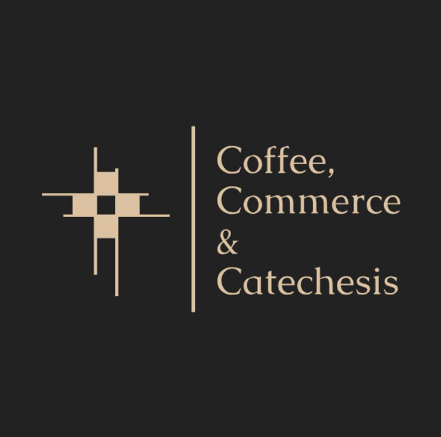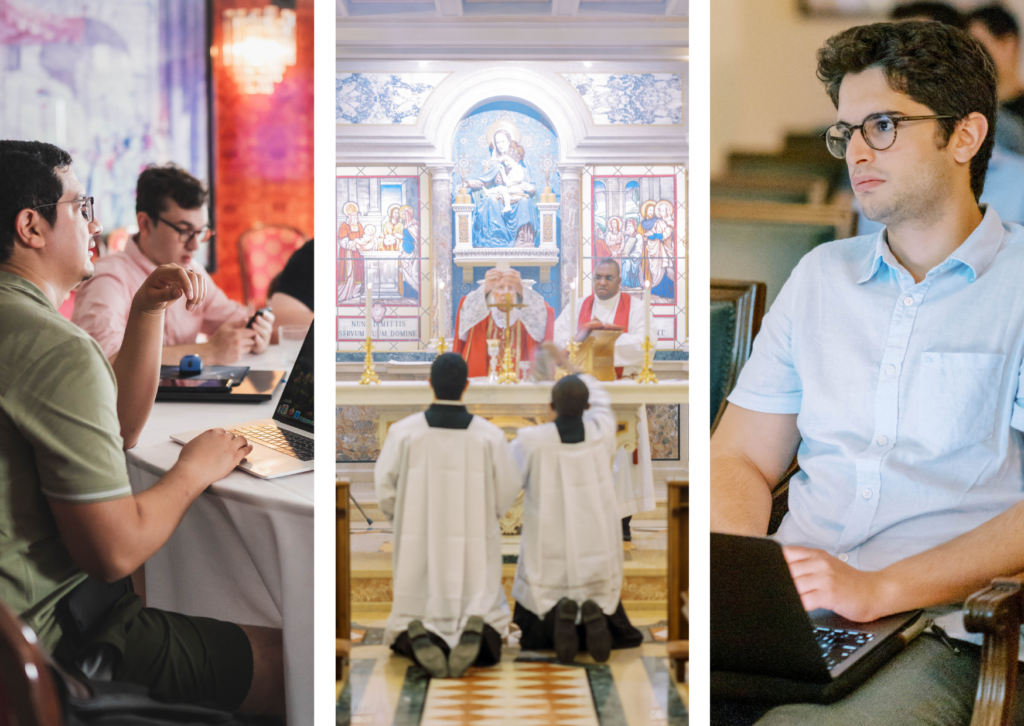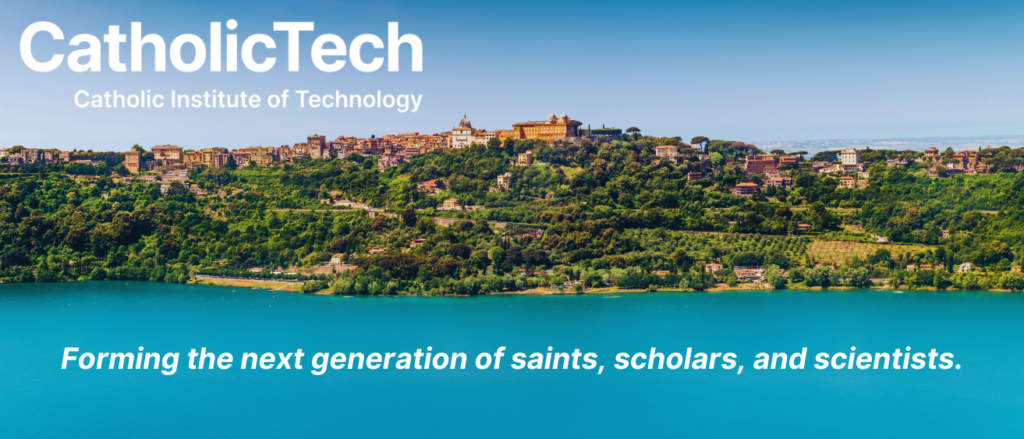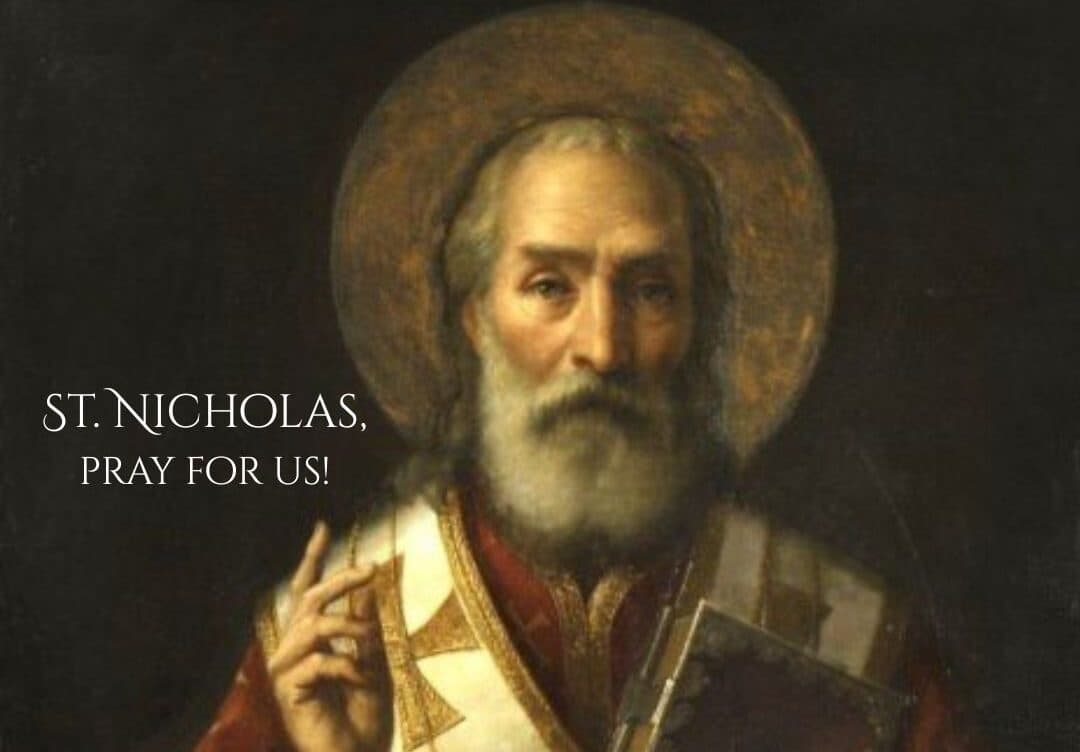
Can Faith and Science be Integrated?

Featuring an interview with Travis Callaway
Earlier this month, Coffee, Commerce & Catechesis, a podcast by Travis Callaway and Rigel Jose Raju, recorded an episode with Dr. Jeff Kleck, Dean of Academics, on the opening of Catholic Institute of Technology. While discussing the upcoming academic year and highlights of campus life, Dr. Kleck discussed the importance of showing the world that faith and science are not conflicting with one another: “We often hear people talk about these two things as separate, and I try to bring them back . . . both of these are experiences, adventures even, of a search for truth. The fundamentals of both of these are the same, so why do they conflict? They don’t conflict. In fact, if we follow the scientific method, we’re constantly testing and creating hypotheses, and what do we do throughout our lives as people of faith on a daily basis but essentially the same thing? I believe Catholics and people of faith pretty much have the scientific method ingrained in them. It just makes sense to have a university that brings them together.” For the full podcast, listen here.

Travis Callaway is a Catholic entrepreneur and co-host of Coffee, Commerce & Catechesis. After converting to Catholicism in the spring of 2023, Callaway grew increasingly uncomfortable with his work in venture capital investments and other projects; after making it publicly known that he was Catholic and would not support things contradictory to the faith, Callaway left the field and started the Coffee, Commerce & Catechesis podcast with Rigel. Together, Callaway and Rigel Jose Raju use the podcast to help Catholics who strive to be good professionals, committed to their faith while living in the secular world.
In addition to the podcast, Callaway recently wrote an article about the supposed conflict between faith and science, a conflict that CatholicTech is seeking to resolve. Although the Catholic Church has been an influence in the movements of science and innovation throughout history, many people believe that the Church is “anti-science.” In reality, the Catholic Church has never been against science and innovation, rather it has been at the forefront of research and education. For instance, the theory of “the big bang” was first proposed by physicist Fr. Georges Lemaître, a Catholic priest, and some of the oldest and most prestigious universities in the world were founded by the Catholic Church, such as Oxford, Cambridge, the University of Paris, and more.
Callaway writes explicitly about the misconception that currently exists when it comes to faith and reason: “First, the Catholic Church’s assertion that truth exists and can be known . . . resulted in the emergence of what we know today as “science”. Science is nonsense without a Creator behind an intelligible and knowable universe. If the universe were not created by an intelligence (i.e., God) then it was randomly/accidentally “created” by non-intelligence which is meaningless, and if it is meaningless and random then studying it is equally meaningless and random because you can’t know anything. Knowledge of anything presupposes you can trust it not to randomly change or cease but you can’t trust things to not randomly change or cease if the universe is random. Science is possible because God exists and if God doesn’t exist then “science” is nonsense.”

The mission of CatholicTech is to show exactly this to the world: faith and reason are meant to be integrated in such a way that we can be innovative and bring greater glory to God as a result. Pope Saint John Paul II said in the opening of Fides et Ratio (Faith and Reason), “Faith and Reason are like two wings on which the human spirit rises to the contemplation of truth; and God has placed in the human heart a desire to know the truth – in a word, to know himself – so that, by knowing and loving God, men and women may also come to the fullness of truth about themselves.” While the world we live in today aims to separate our faith from science and reason, these two facets of our lives are inseparable. As the human race continues to strive for greater knowledge, we must ground our reason in our faith; without faith, reason alone leads to agnosticism and relativism, and faith without reason leads to a lack of confidence in truth. As John Paul II says about the separation of faith and reason, “On this understanding, everything is reduced to opinion. . . people rest content with partial and provisional truths, no longer seeking to ask radical questions about the meaning and ultimate foundation of human, personal and social existence.” (Fides et Ratio, 5).
In an interview with us, Travis Callaway discussed how important it is to have universities like Catholic Institute of Technology for Catholics today – “I think it’s something that is sorely needed in the world and in the service of the Church. We know people are very worried about their educational choices, many are worried about where to study and whether or not they will stay Catholic.” As research institutions and higher education become more secular and cause more opposition to the teachings of the Church, it is more important than ever for Catholics to have a presence in the world of STEM.
Callaway reflected on the future of higher education, saying, “Educating our children is a fundamental responsibility as a parent. I think about the types of questions and challenges they will face because of their faith, and often those questions will be of an intellectual nature, where people will point to something without a proper understanding and convey that something in faith is in conflict with science.” Further, “to be able to share the faith requires an ability to speak to people in a culture which, even if they don’t realize it, often talks about a conflict between science and the faith. We need people who are leading in their fields who are also leaders in their faith.” At CatholicTech, students will not only become leading scientists and members of their fields, but they will also grow in their faith and be able to defend the faith to those who believe in the contradiction between faith and reason.

“For the future of CatholicTech,” Callaway concluded, “the ambition of becoming an R1 university is incredible and necessary.” While we are only getting started, Callaway believes, “decades from now, Catholic Institute of Technology can change the culture, and it can be a part of changing the culture for the better.” As we begin our first academic term in just a few days, we are excited to see how the University will continue to grow while upholding the undeniable compatibility between reason and revelation.





